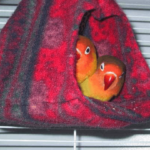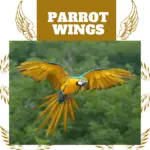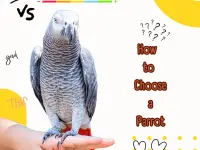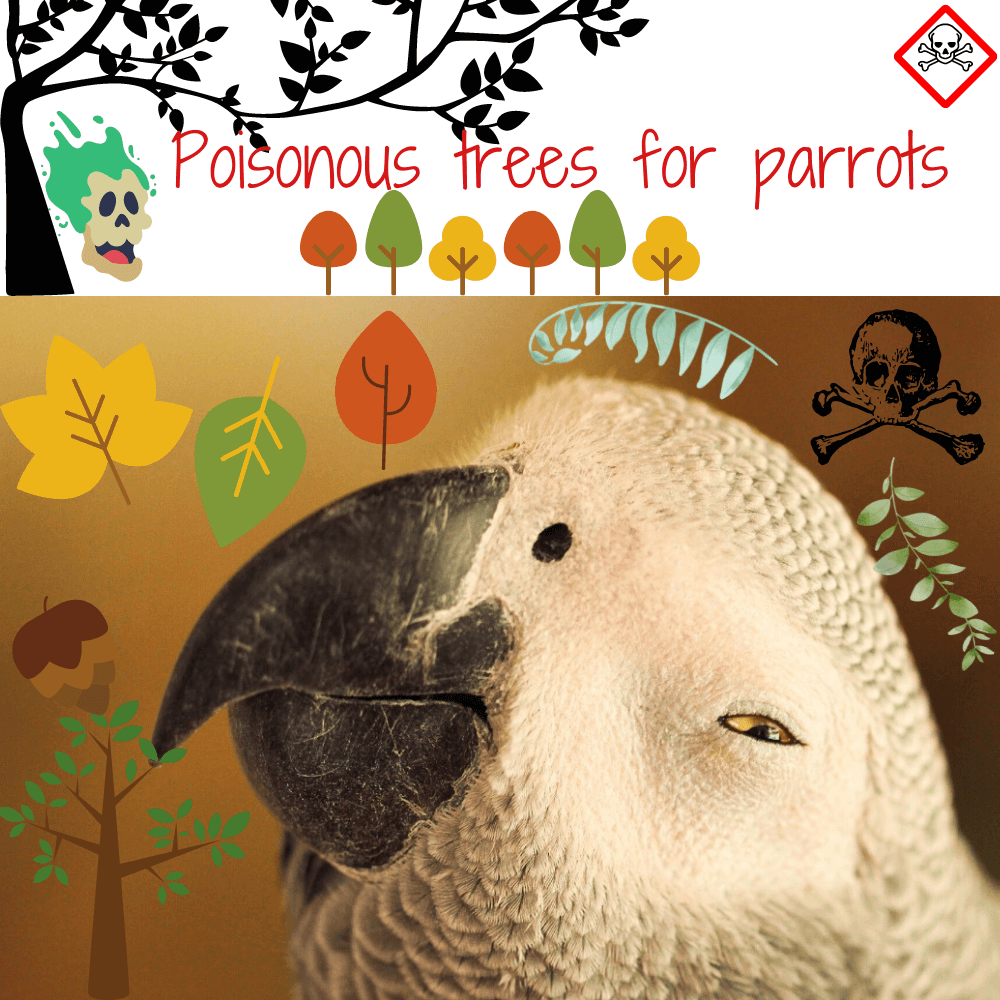
In this list, sometimes the whole plant is toxic to parrots, or only certain parts are and can cause severe to severe poisoning if ingested. The list also includes plants that can cause contact dermatitis, or contain calcium salts (oxylates) that irritate mucous membranes. Anyway, none of these plants should be left at the disposal of his parrot.
SAFE & TOXIC Wood Perches for Birds
SOURCE:Salvador Budgie
List of Poisonous trees for parrots:
aconite apricot/
jupiter’s helmet actate/St- Cristophe’s
grass aglaonema
aloes nobilis
amaranth
amaryllis anemone
*red pea /
Indian
licorice arisaema
asclepias indoor
asparagus
astragalus licorice
eggplant
avocado
azalea
bamboo sacred or celestial
belladonna
beautiful at night
bonsai
boxwood
cocoa theobroma
cactus candle
caladium /elephant
ears calla
carissa
celaste climbing
celastrus
cherry
cherry jerusalem
hemp
oak
cigué
spotted
cicutaire/cigüe aquatic
clematis
heart-bleeding, heart of bride
colchic/autumn
crocus colocasia
coniferous
sunset
crocus
crotataria
cycas
cyclamen persian
daphne
daphne, pretty wood or wood kind
datura or stramoine
diffenbachia
digitale
duranta
thorn of Christ
black
thorn epripemnum
eucalyptus
euphorbia
fern with eagle
feathery
fern charcoal
gelsemium
gelsemium
juniper
geranium
gladiolus
glory of marengo
morning
glory
wisteria gui
heliotrope
holly
hoya or porcelain
flowers hydrangea or hyortensia
if
impatient indigo
iris
hyacinth jasmine
black
untiliame lantana
lantana or camara
chinese
lantern laurel
cherry
laurel cherry laurel of
the mountains
laurel noble
oleander ivy
(all)
ivy with large leaf
ivy German
ivy english
ivy silver
ivy devil’s ivy or photos
ivy glacier
terrestrial
ivy lilac of the indies lilies
(all)
liseron
lobelia
lupin
margosse
chestnut
melaleuca
nightshade of Caroline
morelle
nutmeg
narcissus / daffodil
nephtytis
nerine
nut nut
carnation bearded
bird of paradise
bird black
gold orchid
elephant
ear rabbit
ears oxalidacea
oxytropis
paradelle
opium
poppy peach
thought
snowdrop
periwinkle
little preacher
peyote or mescal
philodendron (all)
leaf philodendron incises
philodendron climbing
pothos or marble
queen pothos golden
phytolacca
lark’s foot or dauphinelle
peony
coral
plant umbrella
podophille
poinsettia
arrowhead
peas of scent lathyrus sp
ornamental
pepper primrose
plum rat
tail buttercup
rheum/rhubarb monks
rhododendron
rhubarb of castor gardens
or palma christi
hoof of the virgin
sansevière, mother-in-law’s
tongue sage officinale
seneson shrub
seringat
sophora
stramoine
sumac (all)
symphorine ferret white
symplocarp fetid or stinky
cabbage syngonium
tobacco
clover creeping
troene
tulip veratre
vetch
virgin
vine violin
vivia faba
zantedeschia
* or… Rosary tree/cascavelle
Minimize risks
Familiarize yourself with dangerous plants in your garden and ban poisonous plants inside the house or aviary. If you are really a gardening freak, keep plants, seeds, bulbs, onions, and chemicals (insecticides, pesticides, fungicides) away from your parrot’s beak.
- Never give berries or wild berries or berries from your garden to your parrot without being sure of their non-toxicity.
Never give seed seeds to your bird. - Never forget that heating or cooking a plant does not always destroy the toxic substance.
- Never rely on wild birds in your area to tell you which plants or berries are not poisonous.
- Never prepare household medicines for your parrot with native or cultivated plants.
Some symptoms of plant
poisoning Ingestion of poisonous plants can come in several forms in parrots, ranging from diarrhea, vomiting, constipation, or other gastrointestinal problems, to disturbances in the nervous system, immune system, or blood. These poisonings can create great damage to the kidneys and liver and changes in blood biochemistry. Some toxins can cause a wide variety of dermatitis or skin reactions resulting in pain, redness, eye or nasal irritation, and even allergies that can degenerate into respiratory problems or severe irritation of the mucous membranes of the mouth or throat and lead to death.
If you believe your parrot has ingested a poisonous
Poisonous trees for parrots and plant
•Identify the plant.
•Call your veterinarian to find out what to do right away and follow their advice to the letter.
•Keep your bird warm, away from any extra stress.
•Go to your veterinarian immediately and take the plant away so that the veterinarian can identify it and be able to see how much the parrot has eaten.
•If your bird has vomited, take a sample of the vomit to your veterinarian.
Poisonous trees for parrots listes
| French name | Latin name |
| Cherry tree | Prunus avium, cerasus |
| plum tree | Prunus domestica |
| Apricot tree | Prunus armeniaca |
| Fishing * (1) | Prunus persica |
| Red maple | Acer rubrum |
| Teak | Tictona |
| Cedar | Thuja |
| Weeping fig tree * (2) | Ficus |
| Wig tree | Fotinus |
| Juniper | Juniperus |
| Oak * (3) | Quercus |
| If | Taxus |
| Common chestnut tree | Aesculus |
| Virginia creeper | Parthenocissus quinquefolia |
| Carob tree | Ceratonia siliqua |
| Black elderberry | Sambucus |
| Oleander | Laurus |
| Syringe | Philadelphus |
| Charcoal | Euonymus |
| Privet | Ligustrum |
| Rhododendron | Rhododendron |
- FRUIT TREES: these species of fruit trees contain cyanogenic glycosides which are extremely toxic to parrots.
- WEEPING FIG TREE: Despite the fact that this decorative plant is considered safe for humans, the sap of some species may contain irritants, whether in the bark, leaves, or skin of the fruit.
- OAK: better to avoid it, even if well-dried oak is often used to make parrot toys without causing any problem (very high creosote rate). If you still decide to use it, never offer it fresh, but always very well dried. Acorns from oak trees, on the other hand, are extremely poisonous.
Poisonous trees for parrots

Cherry tree
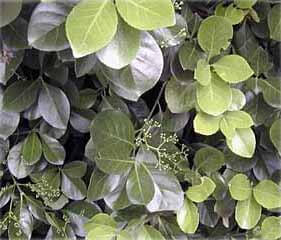
charcoal
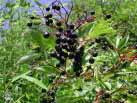
elderberry

apricot tree
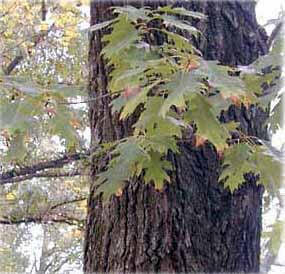
Oak
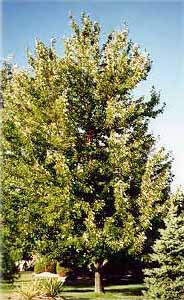
red maple
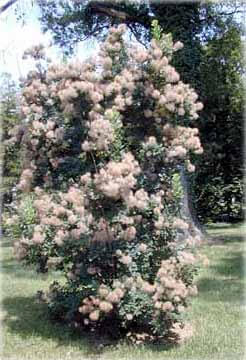
wig tree
Toxic and non-toxic wood for parrots
To make pleasure toys or perches for our parrots, we sometimes hesitate on the species to choose. To stop making mistakes and not making our birds take any risks, here is a summary list of trees whose wood can be used without risk to their health.
We are only talking about trees here, but in another article, we will talk about toxic flowers and apartment plants.
The non-toxic woods you can use are:
- Hawthorn
- Citrus (lemon, orange, kumquat, etc.)
- Almond
- Bamboo
- Bignone
- Bamboo
- Birch
- Cholla
- Dogwood
- Maple (very well dried, never fresh)
- Eucalyptus
- Fig tree
- Ash
- Beech
- Hibicus
- Java
- Lilac
- Larch
- Magnolia
- Mangrove
- Hazel (in all its forms)
- Drown
- Common Olive Tree (Olea Europaea)
- Bohemian olive tree (Elægnus angustifolia)
- Elm
- Poplar
- Pine
- Plane
- Apple tree
- Apple tree
- Pear tree
- Reed
- Rose (all varieties)
- Fir (although resin can be sticky on fresh wood)
- Willow
- Bird’s mountain ash (sorbus aucuparia)
- Linden
- Aspen (poplar family)
- Vine (the one producing edible fruits)
- Yucca (except store-bought seedlings, treated with pesticides).
Toxic woods that should not be used:
- Apricot
- Accacia
- Wig tree
- Alder (irritations and respiratory disorders)
- Avocado
- Boxwood
- Carob
- Cedar
- Cherry tree
- Chestnut
- Oak (asthma, sneezing, vomiting)
- Honeysuckle
- Cypress
- Red maple
- Ficus
- Weeping fig tree
- Charcoal
- Juniper
- Pomegranate (wood and bark)
- Hydrangea
- Holly
- Yew
- Mountain Laurel
- Laurier rose
- Common chestnut tree
- Mimosa
- Chinese mulberry tree
- Nectarinier
- Fish
- Philodendron
- Plum
- Rhododendron
- Seringat
- Elderberry from Mexico
- Black elderberry
- Privet
- Virginia creeper.
Never use any wood that is not clearly identified, and discard those that may have been exposed to hydrocarbons, pesticides, or other toxic substances. Also, note that many exotic kinds of wood are toxic to psittacines. You will find the list HERE. Diseased or parasitized trees are also excluded. Wash all the woods with water with the addition of white vinegar before offering them to your birds.
Related Articles:

